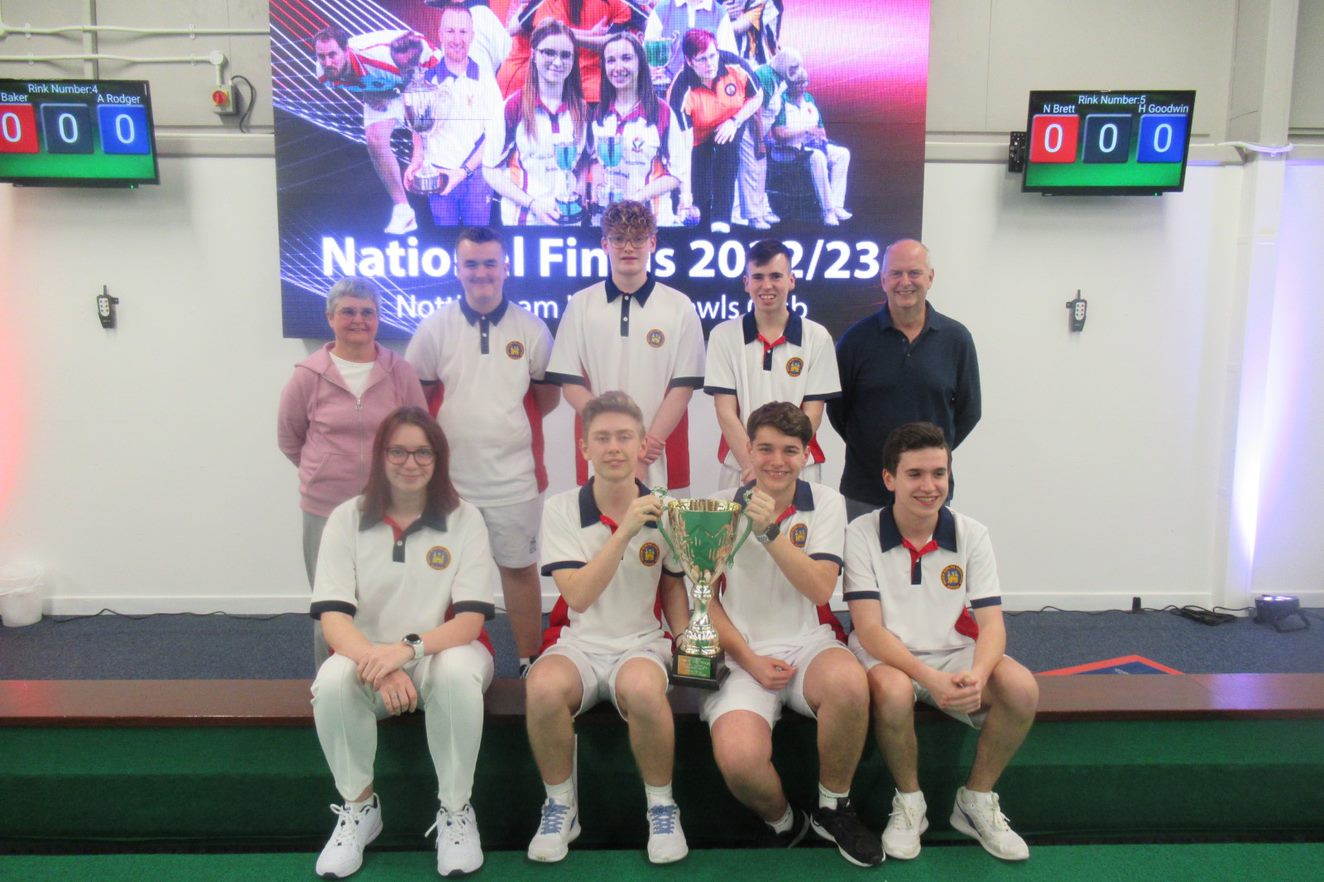 |
The EIBA is pleased to acknowledge the following Official Partners & Suppliers
|
MEET THE EIBA BOARD: JOHN REDNALL |
|
John had been rolling bowls in his garden since
he was a toddler so when he graduated to the bowls green, outdoors
age ten and indoors age 14, his natural ability shone through and he
was soon competing at club, county and then international level. "Quite simply I love bowls," he said. "It has been my main hobby or passion all my life and as well as playing I've coached, managed my county outdoor team, written numerous articles, commentated and held administration positions in various capacities. "Along with most of us, I have had so much fun and enjoyment participating in all aspects of the sport and I wanted to become a director while I'm still a very active player and coach." Such was John's enjoyment of the indoor game that just once a week after starting out at Stowmarket ICI indoor, he found himself in an evening league at Diss before starting to play competitively at Ipswich & District IBC. "For me, bowls was addictive and I would even catch the train from Stowmarket to Ipswich as a teenager to go and practise," John recalled. "It was a 40-minute walk from the railway station to the indoor bowls club with a heavy bag of bowls but I was committed to the sport even at that age; I set myself enormous ambitions and wanted to fulfil them. The dedication paid off and I'm still as committed now, after all these years." John, who has amassed 42 caps playing for England indoors and 101 outdoors, saw the EIBA advertisement asking for nominations from candidates who have experience of coaching juniors. Having been a qualified coach since 1985 and a schoolteacher for 33 years, John believed he was the right man to assist the EIBA with wholescale development of programmes and pathways for juniors. He said: "I have taught hundreds of children to play bowls, coached juniors at Ipswich Indoor on Saturday mornings years and have directed bowls coaching in schools and in the community. I've had the honour of working with various county Under 25 teams and last year, I was the team coach for the successful Suffolk EIBA National Under 18 team that won the title at Nottingham. "I feel that I have a lot to offer in the role of director." John says his meetings with the board and EIBA Chief Executive Peter Thompson have been "inspiring." Together, they've agreed the bones of his role: 1. Awareness of indoor bowls to under 18s across the nation 2. Introduction to bowls via schools and community groups linked with indoor bowling clubs 3. Development of youth sections in indoor clubs 4. Creating and establishing a pathway into the sport via English Bowls Development Scheme, skills awards, club, county and national competitions and international events "It's really ambitious and hopefully ground-breaking," John said. "When I was a music teacher in schools, my philosophy was to get as many children wanting to play instruments, sing, act, participate in assemblies, concerts and productions as possible. At one point, 92 children voluntarily joined my lunchtime choir; I had a school orchestra of more than 40 pupils, a brilliant jazz group, a string orchestra, and windband. "I just wanted children to thrive on musical opportunities, and develop their love of music. My philosophy for junior bowls is identical - to get as many children as possible, from a really young age, loving playing bowls. I want them to be excited about the sport and to want to play it with their friends and families for the fun of it. If they become competitive and eager to develop as future stars, well that would be great! "We need an influx, a surge of new participants in the sport. Let's hope we recruit youngsters in their droves, teach them the basics properly, coach them in a truly professional and exemplary manner and get their brothers, sisters, aunts, uncles, parents and grandparents involved too. If children enjoy bowling, they will exude enthusiasm to their friends and families and communicate the positive message of the benefits of our sport to the outside world. This in turn will make it appealing and something that will benefit new bowlers, our clubs, counties, the EIBA and indeed the sport as a whole." What are the biggest challenges the EIBA faces?  John believes there is already a lot of good work being done by the EIBA Board. "The EIBA has evolved to make the game modern and appealing but at the same time valuing and retaining the traditions and acknowledging the past," he said. "It is now reaching out more and more into the community to enable everyone to come and have a go, to experience the intrinsic benefits of social interaction, good mental health, fitness, exercise and enjoyment of our great sport. There are events to suit just about every age and ability, varied competitions from one-day events to large-scale team events and a superb national finals co-ordinated by Carl Higgins. "We have some great facilities across the country and our clubs are very welcoming hubs in which members can meet for company, meals, social events and as many games a week as they want. However, there are some enormous challenges and threats to our sport. The daily landscape within clubs is changing, maybe because of Covid. "It seems that many members want to play socially, without the pressure of fixtures: they love to play in the afternoons in friendly formats rather than in leagues and competitions. In the main, they do not want to be competitive bowlers; they have no wish to go on and represent the club, however I know several who have surprised themselves by making good progress, bowling better than they ever thought they would and asking for help to improve further. "I hope they will eventually join league teams and enter competitions as the current lack of competitive bowlers presents a challenge. Some clubs struggle to field county league teams, friendly teams and even domestic leagues are seeing withdrawals. Many indoor clubs now have just one evening session rather than two, such is the decline in domestic competition. "Committees at club level are realising that they need to diversify, hire out their facilities and recruit newcomers as a matter of urgency, to balance the books and survive. The economic crisis inevitably affects us as bowlers as rink fees and memberships continue to rise; match fees are expensive and this discourages some from playing Denny, Yetton and similar games. Transport costs have soared for individuals and for clubs hiring mini buses and coaches; accommodation costs also preclude some players from entering nationally. "Sadly, we are largely having to ask for volunteers to staff the office and bar which were previously paid roles. In short, the economy and lack of forthcoming volunteers are huge challenges. We have seen far too many indoor clubs dying in recent years. These are big concerns for the EIBA and the sport." For John, the biggest frustration about the game is the stereotyping that still exists in the media. He said: "We all know that bowls is for everyone and that it's dynamic, exciting, passionate and exciting, particularly in team events. Unfortunately, too many in the media still portray it as a sedate sport, only played by the elderly. Sometimes, the interviewers portray young bowlers as an exception to the rule and even embarrass them by asking why they enjoy a sport that is perceived to be an older generation activity. This does nothing for the self-esteem of the younger bowler who is actually the best publicity for the sport we love. "Hopefully, the work I am doing as a director will get hundreds of children playing and make the image more positive and highlight the inclusive nature of EIBA." Sian Honnor Previous Article - Interview with Robbie Barker |
November 2023
|
Archives |
Accessibility |
Downloads |
Guidance Notes |
Links |
Photos |
Contact Us |
Privacy Notice
Registered in England & Wales No. 06714071. Copyright English Indoor Bowling Association Ltd 1999 - 2025 |


-(003).png)








